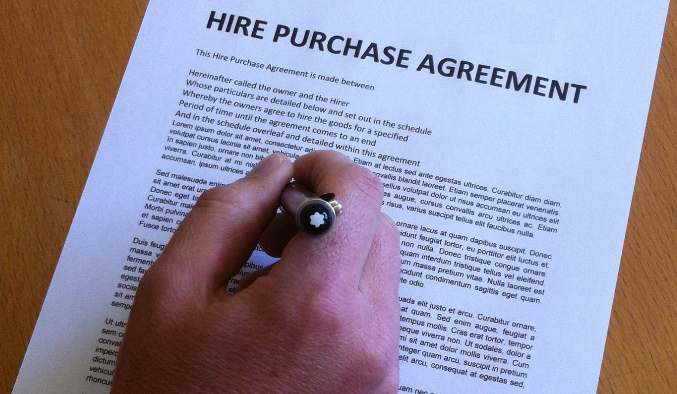Hire Purchase agreement | Elements | Parties involved | Example
Hire Purchase agreement is an agreement between the purchaser and the seller who owns the goods, where the purchaser agree upon to pay the seller the sum owed for purchasing the goods, in installments or in percentage over a period of time.
Table of Contents
Introduction
Historically, we find that the consumers are able to purchase higher value durable goods by making payment for the goods on a monthly installment basis and at the same time the goods are allowed to be used by the buyer in the capacity of a hirer. The buyer can claim ownership of the goods only on the payment of the final installment. Till such time, the amount paid by the buyer is treated as hiring charges. If the purchaser fails to pay any dues, the products will be seized for failing to pay the installment amount.
History of Hire purchase finance
In India, all hire purchase finance companies are controlled by the Hire Purchase Act, 1972. However, in 1989, a Bill was introduced for making certain amendments in the Act but the Bill has not been passed yet.
Two elements of Hire purchase:
A hire purchase transaction has two elements which are governed by the Indian Contract Act, 1872 and Sale of Goods Act, 1930.
- Bailment is one aspect of hire purchase transaction which is governed by the Indian Contract Act.
- Sale is another aspect of hire purchase transaction which comes under the Sale of Goods Act.
The hirer who becomes the purchaser is a bailee until he pays the full price of the goods. The hire purchase agreement comes to an end when the buyer pays his final final installment to the owner of goods.
Characteristics of Hire Purchase agreement
The essence of the purchase agreement between the seller and the buyer is that the ownership of goods does not pass to the buyer until he pays the last installment. There are two parties to the hire purchase agreement. One is the hire vendor, who is the seller and the other is the hire purchaser, the buyer.
The hire purchaser exercises the option of purchasing. He may even return the goods, if he is not satisfied with their quality or performance. But this is different from installment sale, in which the ownership of the goods passes to the buyer immediately on payment of the first installment and the buyer has no option to return the goods.
Hire Purchase Agreement
In hire purchase agreement, the purchaser has to make a down payment of 20 to 25% of the cost and the remaining amount has to be paid in equal monthly installments. In the case of a Deposit linked plan, the hire purchaser has to invest a fixed amount as fixed deposit in the finance company which is returned together with interest after the payment of the last installment.
Parties to the Hire Purchase Contract:
There are two parties in a hire purchase contract
- The intending seller
- The intending purchaser or the hirer.
Tripartite agreement in Hire purchase:
Presently, there are three parties involved in India consisting of seller, financier and the hirer / purchaser. Thus, a seller arranges a hire purchase agreement through a finance company with the customer. So, it is a tripartite agreement.
Example of an hire purchase transaction:
When a vehicle is purchased on hire purchase, the finance company will have the vehicle hypothecated in its favor and this will be mentioned in the R.C book (Registration Certificate book) of the vehicle and also in the insurance policy. On completion of the installment amount, the purchaser will get a certificate from the finance company regarding the completion of payment. The RTO (Regional Transport Office of the government) authorities will cancel the hypothecation in the R.C book and will also mention that the hypothecation is cancelled with effect from a particular date. This will be duly informed to insurance company, which in turn will cancel the hypothecation by making an endorsement in the insurance policy. Thus, the ownership gets completely transferred in the name of the purchaser / hirer.




